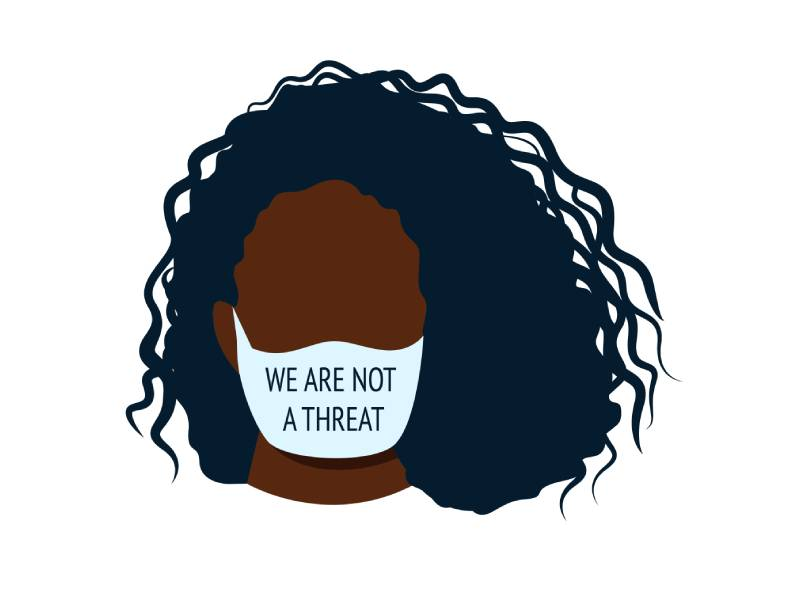An anti-rape movement propels Nigerian state to institute harsher punishments for sex offenders.
In September, 2020, a Nigerian state, Kaduna amended its rape laws. It is now packed with severe punishments for the child rapist – life imprisonment, removal of testicles, fallopian tubes and death. Undoubtedly, the new laws do bring attention to sexual and gender-based violence, but it is a peculiar way to punish a convict. There isn’t any penal model anywhere in the country or even in Africa.
According to the rape law, if the victim is older than 14 years, the convict gets life imprisonment plus an orchiectomy – surgical removal of his testicles. For female abusers, their fallopian tubes are removed – bilateral salpingectomy – and they also face death or life imprisonment. Although the state maintains the “drastic penalties are required to further protect children from a serious crime,” there seems to be no precedent for it. What is more unsettling is the removal of the females’ reproductive organs. What crime did the fallopian tubes commit? The government may have sought to balance the gendered punishment by an equal cutting of a substantial female organ.

The fallopian tube is not the instrument of crime. Removing them does not suppress the sex drive, but it does prevent the rapist from conceiving a child. It is difficult to measure the value of this penalty if the convict’s child bearing years are over or if she is not interested in having children. Is mutilating her reproductive organs adequate to the crime? With this rape law, the state has accrued a lot of powers to invade the offender’s body and cause damage. Iyke Igbinosa, a Benin based trial lawyer believes that the law is in order based on the principle of commensurate punishments. “The victims face lifelong trauma, so no punishment is too much as long as the means of execution is not degrading.” The lawyer believes the death penalty is adequate to deter and punish offenders. According to Section 45 of the Nigerian Constitution 1999 as amended, the law tackles a societal menace seeking to deter further acts, and where it happens to punish, it isn’t used as a tool against a tribe, religion or gender.
Sex crimes have always been with us, the media is saturated with revolting reports of abuses. But what is startling is the epidemic-like assaults on minors – regardless of gender – wherein protectors have become predators. One Community Health Educator for Doctors Without Borders, Veronica Uweh acknowledges that about 80% of the monthly cases treated are below fifteen years. Covid-19 and its restrictions have exposed females and minors to abusers, upping the spate of rape and rape-to-death crimes. The Nigerian Ministry of Women Affairs reported over 3,600 cases nationwide, each state recording about 100 assault cases. In June, this upsurge sparked outrage online that transformed to public protests. While America chanted Black Lives Matter, marching for racial justice in the wake of the George Floyd killing, Nigerians hit the streets protesting the gruesome attacks on women. These agitations have led to calls for stiffer punishment for sexual violators.
The new rape law reads, “Whoever has sexual intercourse with a child below the age of fourteen years shall be punished with surgical castration and death.” If convicted rapists are going to die or be imprisoned for life, why do they have to undergo an orchiectomy or bilateral salpingectomy? It gives a sense of double punishment to neuter and take life – a death sentence is after all the ultimate penalty for all crimes. Perhaps the state government was moved by populist sentiment to hastily amend the rape laws. What is the justification for punishing twice, unless the purpose of the law is to induce fear in potential offenders?

Voluntary castration is offered in European countries like the United Kingdom, France and Denmark. It is also practiced in American states like California, Alabama, Texas and Florida. Only few countries have adopted chemical castration as punishment for sexual violators. Forcibly removing reproductive organs and killing convicts is rare. Unless the enabling law is set aside for being repugnant to natural justice, equity and good conscience everything done pursuant thereto is legal in this Nigerian state. Once convicted, the victim’s right is slim.
Dr. Chinwe Inogbo, a consultant psychiatrist questions the idea of attributing rape to sex drives. “Is the libido responsible for all sex crimes?” she asks. “Castration as a punitive measure will not remove the drive, especially in females. Women who have tubal blockage still have sexual impulses.” The doctor explains that mental disorder can be a factor in deviance. “The rapist may have an antisocial personality or a sexual preference disorder, like pedophilia, and even if you remove his organ you probably won’t achieve much.” Dr. Richard Ikpegbu, a Lagos based medical practitioner echoes this belief, “If there is something wrong with the mind, the person can find other ways to commit the crime.” He believes extreme penalties can breed bitterness, hate and vengeful bents. Rapists may resort to killing their victims, knowing they will be castrated, killed or imprisoned for life if exposed.”

There are notoriously low conviction rates for offenders and this stringent rape law sends a stronger message of the wrongness of the crime. But will unmanning and executing the offender bring succor to a parent whose two year old toddler was callously violated? Probably. Will castration and death stop sexual crimes? Probably not. There isn’t much evidence to suggest that harsher punishments deter crimes. Murders still occur even with hardcore penalties.
Supporters of castration believe offenders have an irresistible drive to molest the vulnerable and can re-offend whenever the opportunity presents itself. The survivor will live with the scars forever, so a vile crime deserves a vile punishment. Yes, emasculating and killing a rapist may be emotionally satisfying in a vengeful sense, but an eye for an eye is no deterrence. Knowing the stakes, victims may feel more pressured to recant the accusation and criminals can still find other creative ways to abuse the vulnerable.

Undoubtedly, the crime of rape, especially against a child is heinous and demands maximum punishment. But castration and death do seem quite barbaric. Utilizing the official power to execute does not elevate society. In forcibly sterilizing the violator, are we not also losing some of our humanity? “I would not be comfortable doing it,” says Dr. Richard Ikpegbu. He reasons that a doctor may feel forced to do the surgery knowing it’s not being done to save a life. “If I was a surgeon in the state, I would not want to do that. Rather I would leave the state.”
Castration will not cure a deviant mind or reduce the will to offend. It takes some mental and moral defect to sexually abuse a child or an adult. Dr Chinwe Inogbo suggests a long imprisonment and psychological evaluation to determine the type of abnormality. This would mean working with mental health institutions to identify deviant behavior and treat it.
The solution to this rape epidemic and other sexually related violence also lies in vigilance and activism. Institutions will have to create effective channels for reporting, investigating and rigorously prosecuting the accused. African communities will also need to step up advocacy to propagate victims’ rights, combat stigma, and educate on consent. More than ever, all would have to stand in solidarity for the protection of the vulnerable.

Belinda Nzeribe is the magazines contributing writer, editor and interviewer based in Nigeria. Her work furthers a transatlantic relationship between FunTimes diaspora audience and the motherland. She began her career as a broadcast journalist, and is currently the managing editor of IkejaBird Media, an online news publication. She also runs creative writing clubs in high schools and publishes student anthologies. Her other passion is child literacy and she manages a charity working to improve reading levels of children in low-income communities. Belinda holds degrees in Theatre and Film, Public and Media Relations, and International Affairs.





